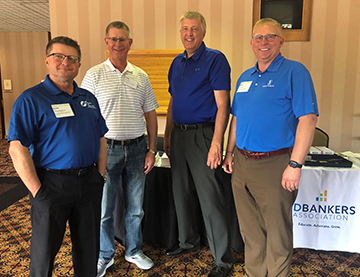 The SDSU Extension Rural Behavioral Health Team is partnering with the South Dakota Counselors Association to provide the South Dakota Farm and Ranch Stress Summit on Sept. 23-25 in Oacoma.
The SDSU Extension Rural Behavioral Health Team is partnering with the South Dakota Counselors Association to provide the South Dakota Farm and Ranch Stress Summit on Sept. 23-25 in Oacoma.
The purpose of the Summit is to provide the ag community with information on working through individual stress and how to provide support to individuals dealing with stress. Including farmers and ranchers--as well as those in support positions such as counselors, bankers, consultants, clergy, crop insurance agents and other business members--in these conversations will strengthen communities across South Dakota.




